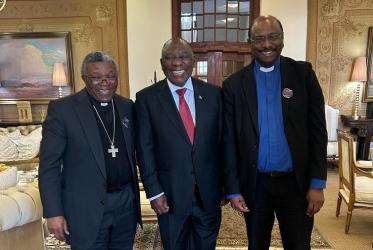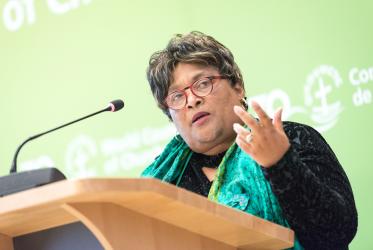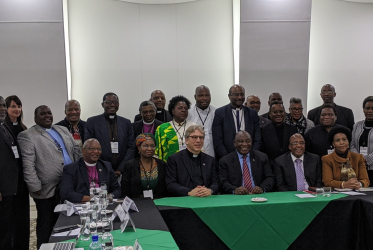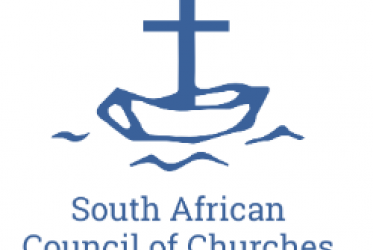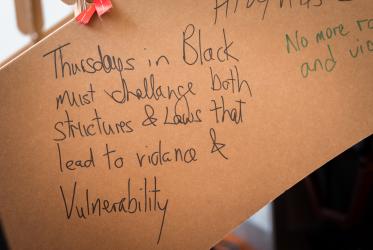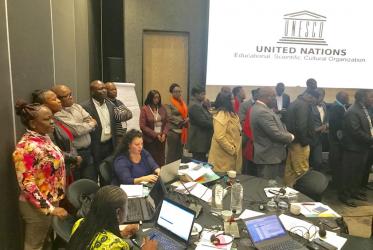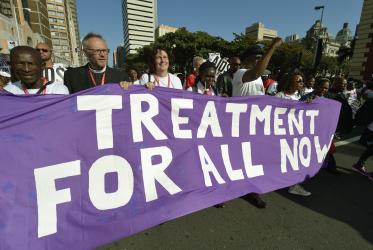Displaying 1 - 20 of 31
South Africans draw hope despite recurring challenges
16 December 2019
La délégation du COE rencontre le président sud-africain Ramaphosa
09 December 2019
When you strike the women, you strike a rock
18 September 2019
Frapper une femme, c’est comme frapper un rocher
18 September 2019
Prof. Mary-Anne Plaatjies-Van Huffel: “we are redesigning theology”
03 September 2019
«L'amour triomphera»
23 August 2018
#WCC70: Les Églises, des «agents de la liberté»
12 February 2018
G7 must address famine
22 May 2017
Le G7 doit lutter contre la famine
22 May 2017
AIDS 2016: Coverage of faith response to HIV
22 July 2016
